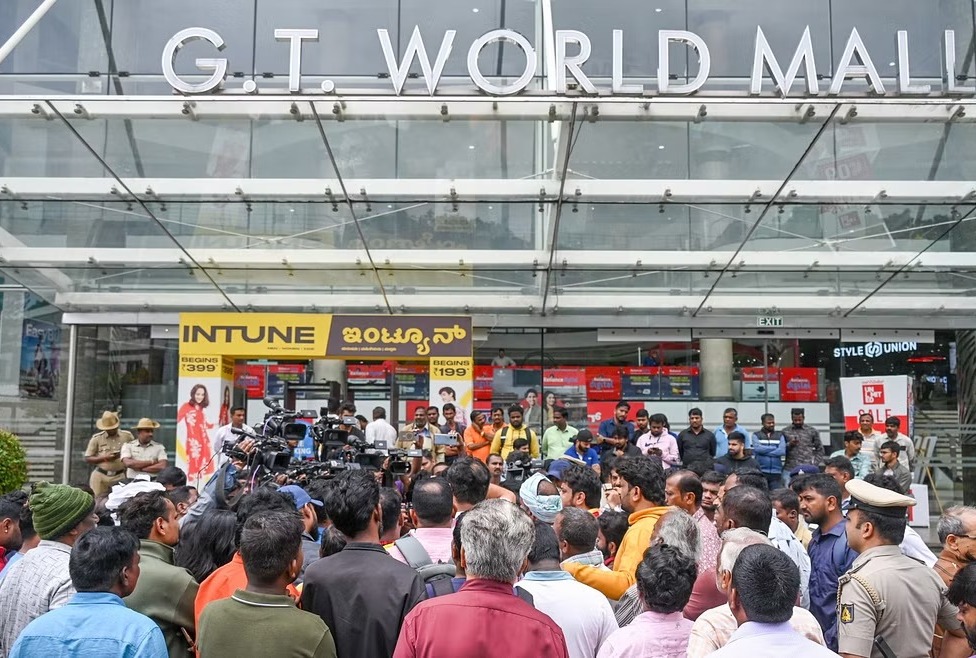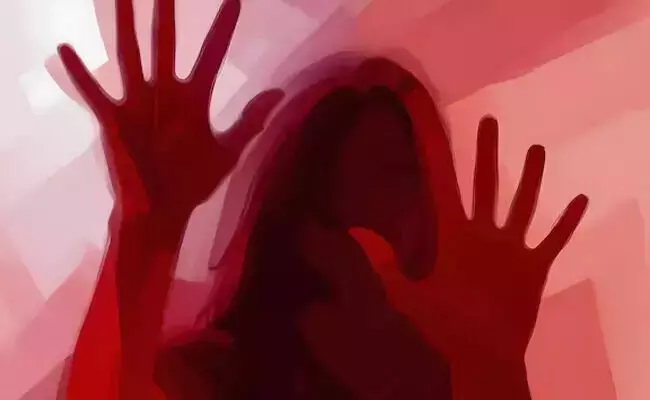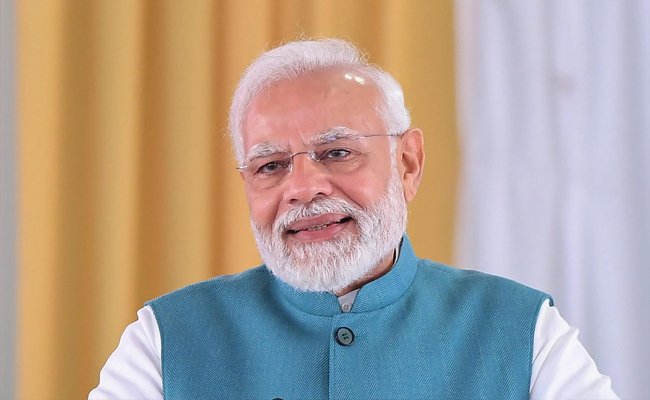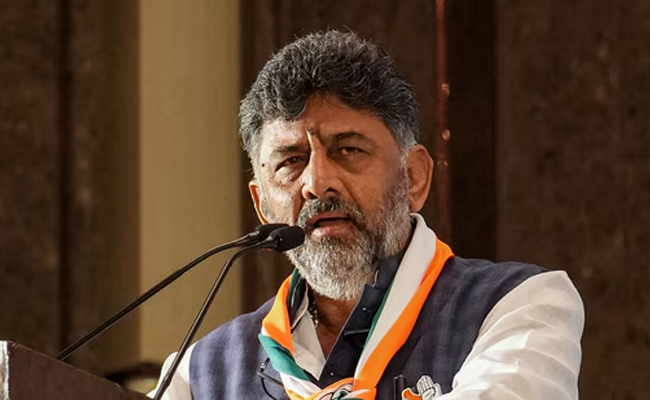Bengaluru (PTI): Karnataka Deputy Chief Minister D K Shivakumar on Monday said the government will issue guidelines to malls and other establishments, in the wake of a farmer being denied entry because of his attire.
The government on July 18 ordered closure of the G T World mall here for seven days after the incident, which drew strong condemnation from members cutting across party lines in the Legislative Assembly.
It had also termed the alleged insult to the farmer as infringement of "dignity and self respect" of an individual, and said it cannot be tolerated.
"There had been discussion last week in the Assembly over a farmer from a village being denied entry into a mall owing to his attire -- wearing a 'panche' (dhoti) -- which is our cultural attire. Following the incident, orders were issued for its closure. We have also decided to issue guidelines in this regard, whether it is a mall or any other place -- small or big. 'Panche' is part of our culture," Shivakumar told the Assembly on Monday.
He said: "notice was issued to the mall for its closure; they also had some tax dues, we have taken a written explanation from them and also apology. They (mall) have also given a cheque to pay the tax dues. To ensure that such incidents don't repeat anywhere in the state, we will issue guidelines."
"The mall had tax dues to the tune of Rs two crore; they had paid in between; some amount was pending to be paid for which July 31 was the last date; we have taken cheque from them and we are allowing them (to operate)," Shivakumar added.
The incident reportedly happened on July 16 when septuagenarian Fakeerappa from Haveri district visited the mall along with his wife and son to watch a movie at a multiplex.
Fakeerappa was reportedly wearing white shirt and 'panche' (dhoti), and the security staffer at the mall allegedly told him and his son that he won’t be allowed inside in a 'panche', and to "wear trousers and come."
JD(S) floor leader C B Suresh Babu requested the Deputy Chief Minister to bring private clubs too under the guidelines.
He said: "People wearing 'panche' are not allowed in clubs too, please include clubs too while bringing in the guidelines."
Intervening, Law Minister H K Patil said Shivakumar's statement was regarding a specific incident, and requested him not to include clubs and bars. "This is a matter regarding self respect of farmers and village population; don't mix other things in this."
Leader of Opposition R Ashoka welcomed the government's plans to issue guidelines through a circular, but added "we are aware that the circular will be forgotten after six months."
"So, I suggest while giving licence, include the guidelines in that -- those wearing traditional village attire should not be harassed. If it is included in the license it will be helpful, as the licence will be kept permanently," the BJP leader said.
He also said that guidelines should cover recognised or reputed clubs for which the government has given land and permissions. "We are not asking for bars and wine stores..... This has even been recommended by the House committee."
Congress MLA and Chief Minister's economic adviser Basavaraj Rayareddi too noted that clubs in the city impose certain restrictions on dress, and circulars should be issued to them too.
Let the Truth be known. If you read VB and like VB, please be a VB Supporter and Help us deliver the Truth to one and all.
Dharamsala (PTI): The countdown to save his place in the playing XI begins for a beleaguered Shubman Gill, who is likely to get three matches against South Africa to prove his worth before the Indian team management switches to a ‘Plan B’ ahead of the T20 World Cup, starting in six weeks.
As India gear up to play the third T20I against the Proteas on Sunday in sub-10-degree temperatures in the lap of the ice-clad Dhauladhar range, things are suddenly heating up in the Indian dressing room, with the prolonged poor form of skipper Suryakumar Yadav coming under the scanner.
ALSO READ: South Africa level series after de Kock special; Gill, SKY misfire again
Worse, his deputy Shubman Gill, who was pushed into the XI at the expense of a settled Sanju Samson, is not inspiring much confidence.
The South African pace attack featuring Anrich Nortje, Marco Jansen, Lungi Ngidi, Ottniel Baartman and Lutho Sipamla — has shown how to bowl on Indian tracks, and the HPCA Stadium strip, offering extra bounce and some movement off the surface, will certainly keep them interested.
Among all T20 sides, South Africa, in terms of personnel, appears to have the requisite balance to win the trophy in the Indian subcontinent this time. Quinton de Kock’s return, along with the likes of Aiden Markram, Dewald Brevis, Donovan Ferreira, David Miller and all-rounder Jansen, gives their batting an intimidating look.
With only eight games, starting from the third T20I, left before the start of the T20 World Cup title defence, India's under-fire head coach Gautam Gambhir won't be able to afford, two out-of-form top-order batters in the starting line-up.
Being the skipper of the side, Surya will certainly have immunity going into the T20 World Cup despite being completely out of form for the past one year but same can't be said about Gill, who wasn't the original choice as an opener.
Gill's entry into the T20 set-up was a classic case of trying to fix something that ain't broken and things haven't looked good so far.
In this backdrop, Gill would need to bat out of his skin to prove that Ajit Agarkar-led committee wasn't wrong in throwing Samson under the bus for one bad series against England.
The stylish Indian Test and ODI skipper will have to find his T20 game and at least score in two of the three matches if he doesn't want Samson to get his rightful place back or for that matter, find Yashasvi Jaiswal, with a fabulous T20I strike-rate of 165, enter the fray during New Zealand series.
Lack of clarity
==========
While head coach Gambhir is too proud a person to admit but sending Axar Patel as a one drop batter during the second T20I was a "tactical brain fade" from the team's think-tank.
The kind misstep that was taken with Axar's promotion is unlikely to be repeated in the third game where skipper is expected to go back to No.3 where he has got a lot of success in his first few years at the international level.
Similarly, Shivam Dube being sent at number eight due to the shuffling of batting order was another poor call which would need course correction in the next game.
Is there a place for Kuldeep Yadav?
=========================
Kuldeep Yadav is one bowler who has consistently troubled the Proteas batter but in an Indian team where batting till No. 8 is non-negotiable, the left-arm wrist spinner often finds himself getting the rough end of the stick.
At Dharamsala too, he might have to sit out as Kuldeep and Varun Chakravarthy, two non-batters can't be clubbed in the same T20 playing eleven as that would lead to compromise in batting depth.
While Arshdeep hasn't had a good series so far, it will be interesting to find if team management can find a place for Kuldeep in the playing eleven with Hardik Pandya sharing the new ball with Jasprit Bumrah.
The five-match series is currently tied 1-1.
Teams:
India: Suryakumar Yadav (captain), Shubman Gill, Abhishek Sharma, NT Tilak Verma, Axar Patel, Hardik Pandya, Shivam Dube, Jitesh Sharma (wk), Varun Chakravarthy, Arshdeep Singh, Jasprit Bumrah, Sanju Samson (wk), Harshit Rana, Kuldeep Yadav, Washington Sundar.
South Africa: Aiden Markram (captain), Quinton de Kock, Reeza Hendricks, Dewald Brevis, David Miller, Tristan Stubbs, Donovan Ferreira, Marco Jansen, Lutho Sipamla, Ottniel Baartman, Anrich Nortje, Lungi Ngidi, Corbin Bosch, Keshav Maharaj, George Linde.
Match Starts at 7 pm.





